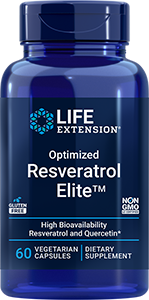 | September 8, 2009 | Vitamin C deficiency linked to metabolic syndrome components in young adults | | Researchers from the University of Toronto report in the August 15, 2009 issue of the American Journal of Epidemiology that one out of seven young adults in a sample of the population were deficient in vitamin C, which was associated with increased waist circumference, body mass index, blood pressure, and C-reactive protein (CRP), a marker of inflammation. Abdominal obesity, hypertension, and elevated CRP are components of the metabolic syndrome, which also includes disordered lipids, glucose intolerance, and a prothrombic state. Having a greater number of components of the syndrome increases the risk of the development of type 2 diabetes and cardiovascular disease. For the current analysis, Dr Ahmed El-Sohemy of the University of Toronto's Department of Nutritional Sciences, along with Leah Cahill and Paul N. Corey, examined data from 979 participants in the Toronto Nutrigenomics and Health Study conducted between 2004 and 2008. Dietary questionnaire responses were evaluated for vitamin C intake, and blood samples for serum ascorbic acid and other levels. Approximately one-third of the participants had suboptimal serum vitamin C levels, and 14 percent had levels that were deficient at less than 11 micromoles per liter. Men's risk of deficiency was significantly higher than that of women. Vitamin C levels were correlated with dietary intake, with the risk of deficiency 3.43 times greater among those who failed to consume the Recommended Daily Allowance (RDA) of vitamin C. Seventeen percent of the subjects had vitamin C intakes that were below the RDA, which is just 90 milligrams per day for nonsmoking men and 75 milligrams per day for nonsmoking, nonpregnant women. Deficient individuals' mean serum C-reactive protein levels were twice those of participants with adequate levels, and waist circumference, body mass index, and diastolic blood pressure were also higher. The study is the first, to the authors' knowledge, to evaluate vitamin C deficiency among Canadians in this age group. "An inverse association between serum ascorbic acid and markers of chronic disease was already present in these young adults suggesting potential adverse health effects," the authors write. "The implications of these findings underscore the importance of obtaining the RDA for dietary vitamin C in order to decrease the prevalence of serum ascorbic acid deficiency in young Canadians and to potentially decrease the risk of long-term adverse health effects." | |  |
| A new approach to diabetes recognition and treatment is needed because the conventional wisdom has failed us. America is in the midst of a diabetes epidemic. Over the past 20 years, the number of adults diagnosed with diabetes has more than doubled, and children are being diagnosed with diabetes in alarming numbers. Diabetes has rapidly emerged as a leading culprit in the epidemic of heart disease that is sweeping the country, and it is a leading cause of amputation and blindness among adults. Oxidative stress is also central to the damage caused by diabetes. Diabetics suffer from high levels of free radicals that damage arteries throughout the body, from the eyes to the heart. It is important that diabetics understand their need for antioxidant therapy to help reduce oxidative stress and lower the risk of diabetic complications. Risk factors for type 2 diabetes include aging, obesity, family history, physical inactivity, ethnicity, and impaired glucose metabolism. The development of type 2 diabetes is also a prominent risk of the metabolic syndrome, a constellation of conditions that includes insulin resistance along with hypertension, lipid disorders, and being overweight. People who are obese have a far greater tendency to develop type 2 diabetes than those who are relatively slim. Therefore, weight loss accompanied by increase in exercise and a healthy diet is effective for diabetes prevention and treatment (Mensink M et al 2003; Sato Y 2000; Sato Y et al 2003). Vitamin C has a role in reducing the risk of diabetic complications. In one clinical study, vitamin C significantly increased blood flow and decreased inflammation in patients with both diabetes and coronary artery disease (Antoniades C et al 2004). Three studies suggest that vitamin C, along with a combination of vitamins and minerals (Farvid MS et al 2004), reduces blood pressure in people with diabetes (Mullan BA et al 2002) and increases blood vessel elasticity and blood flow (Mullan BA et al 2004). |
| |  | | Life Extension Update | | What's Hot | | Life Extension magazine | |















